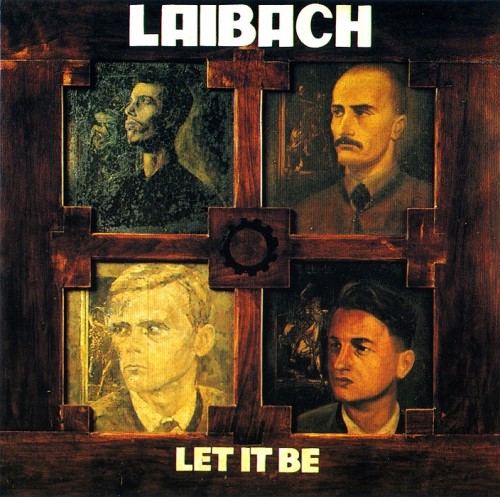Ex: http://www.counter-currents.com/
Translated by Andreas Faust
Editor’s Note:
Although the author of this article does not like Laibach as much as I do, this is just the first of several pieces occasioned by Laibach’s recent 30th anniversary. Stay tuned.
The most recent (November) edition of the art magazine MONOPOL is devoted to collectives, and the title story concerns the Slovenian industrial band Laibach, who understand themselves as a “Gesamtkunstwerk.” To document the 30th anniversary of their group this year, the controversial musicians have held an exhibition, a symposium, and several concerts.
Daniel Völzke and Martin Fengel of MONOPOL traveled to the festivities in Slovenia at the end of September. They could have saved their money, however. Their report consisted mainly of opinions and insights about the provocative band which have accumulated over the decades. On one side is the accusation that Laibach help propagate a fascist aesthetic. On the other is the explanation: It’s merely an “über-identification” with totalitarian systems, which in the end reduces them to an ad absurdum.
The art critic Boris Groys speaks of a production “more totalitarian than totalitarianism.” Laibach themselves have said little on the topic. Either they give statements which the media expect, for instance:
“We are fascists to the extent that Hitler was a painter.”
Or they announce general facts without any specifics. Thus they babbled to Daniel Völzke:
“We believe in an art which advances social, political and economic reforms, but also an art which tests the boundaries of aesthetic experience. In collectively organized movements these two goals can develop more organically.”
Such statements leave us clueless.
The principle of retro-avantgardism, which the Slovenians make use of, consists in steering for the most sensitive parts of our identity, with countless historical backdrops (NS propaganda, socialist realism, Christian iconography). Yet the aim is not a political one. Rather, it’s about the maximum energetic mobilization of the observer. This can manifest as indignation, frenzied jubilation, or even physical ecstasy.
At the same time, Laibach are aware of the greatest problem currently facing them. At the symposium, founding member Ivan Novak stressed:
“It’s easy to be New when one is new, but hard when one is as old as we are.”
Put plainly: provocation wears thin over time. The industrial band’s highpoint is probably behind them, and they are even aware of this. In December they will give several concerts in Germany. On YouTube one can sign up for a fascistic “Dance Course with Laibach.” After that, anyone — far from politics — will know how a fascistic aesthetic affects them.
Source: http://euro-synergies.hautetfort.com/archive/2010/11/18/3...





 del.icio.us
del.icio.us
 Digg
Digg
Les commentaires sont fermés.